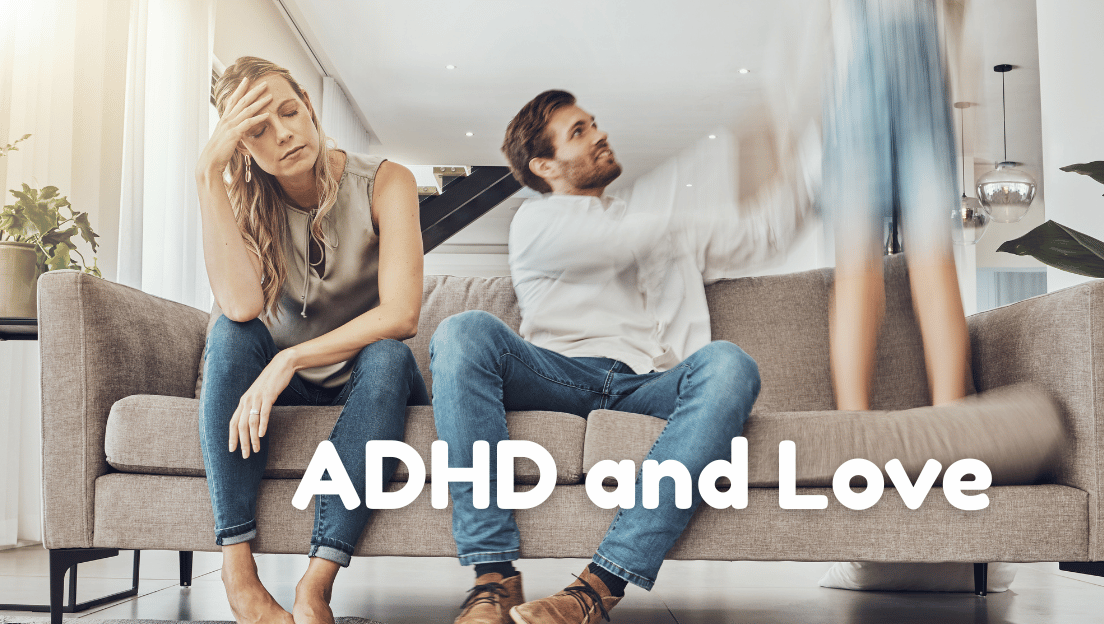Love is not so much about romance and “butterflies in the stomach” as it is about being able to navigate another person’s feelings and behaviors. When one or both partners live with Attention Deficit Hyperactivity Disorder (ADHD), relationships can develop according to a completely unexpected scenario. And here a question arises: is it possible to build a harmonious connection if you or your partner is neurodiverse? And in general, ADHD can affect relationship dynamics, while relationships themselves can either intensify symptoms or, conversely, help a person cope with them.
To begin with, it’s worth noting that ADHD and relationships is quite a broad topic that touches on many aspects of couple interaction, from emotional vulnerability to everyday routines and household life. Research shows that such invisible symptoms of ADHD as forgetfulness, difficulties with switching attention, and cognitive fatigue can often affect the emotional intimacy between partners, cause misunderstandings, and influence the intimate sphere of the couple.

What is ADHD, and how does it manifest in love
ADHD is a neurological condition that affects the ability to focus, control emotions, and restrain impulses. Adults with ADHD may experience:
- Difficulties maintaining attention not only on small details but also on more significant moments, both in tasks and emotions
- Impulsive actions — for example, spontaneous spending or abruptly ending conversations, or harsh statements made in the heat of the moment
- Frequent loss of interest in activities, things, or people, as well as regular everyday forgetfulness
- Heightened emotionality, including outbursts of anger, sudden mood drops, or, conversely, excessive excitement or joy without apparent reason
- Energy fluctuations — from hyperactivity to apathy and depression
All these aspects can undoubtedly affect intimacy and trust, undermining stability in relationships. And, in such moments, the partner without the syndrome may feel ignored, unheard, or simply that their needs are being neglected. Although the person with ADHD is actually trying, they just face difficulties with perceiving the situation, concentrating, and maintaining attention.
Why relationships with ADHD can feel like an emotional rollercoaster
Love with ADHD often begins with a strong attraction to a partner, the so-called hyperfocus. This is a state in which a person completely focuses on their partner. At the beginning of a relationship, they may write every minute, come up with surprises, give gifts, and be incredibly attentive and passionate. But over time, the hyperfocus dissipates, and the partner with ADHD seems to “disappear.” They become immersed in work, lose interest in spending time together, forget important dates, and seemingly become completely indifferent to their partner.
At this particular point, it’s important to understand that this isn’t actually about indifference, but about the difficulty of maintaining a stable rhythm. And one way to maintain stability in such an unstable dynamic is to implement mindful habits that help return to calmness and focus. Some couples find help in a conscious approach to habits and self-regulation, for example, through digital solutions. Many couples find support and inspiration in stories from others with similar experiences. For example, forum discussions frequently reference what is Liven — a digital tool that helps people with ADHD establish beneficial habits and monitor their emotional responses. According to users, such solutions provide good support in working on oneself and relationships.
Main Challenges in Relationships with ADHD
The syndrome affects relationships not only through actions and behavior but also through how a person with ADHD perceives others. They may misunderstand the words or reactions of their partner, not notice signs of hurt or care right away, or forget about agreements. This is because the brain with ADHD often finds it difficult to quickly pick up on subtle emotional signals from another person (such as facial expressions, intonations, gestures) and maintain focus on several things simultaneously. As a result, this can affect both everyday situations and deeper feelings.
Here are the main areas where this is especially noticeable:
- Emotion management. Most often, people with ADHD find it difficult to keep emotions under control. Mood can change dramatically—from joy to irritation or resentment, and this almost always affects the atmosphere in the relationship.
- Attention disorders. It is quite characteristic for a person with ADHD to interrupt, forget what was said, or not listen to the end, so their partner may feel that they are not given enough attention or that their opinion is not important.
- Procrastination and chaos. Often with ADHD, there is a feeling that everything is in complete chaos, from thoughts to tasks. Household duties may be forgotten, and promises may be postponed, which ultimately undermines trust and causes irritation.
- Guilt and self-criticism. Often, people with ADHD feel shame for their “failures” in relationships and at the same time, cannot explain anything and express their feelings adequately.
- Social difficulties. Harsh phrases, inability to stop in time during an argument, and painful reactions to any criticism often lead to the accumulation of tension and negative emotions, and further to complete misunderstanding between partners.

How to maintain healthy relationships with ADHD
At first glance, relationships where ADHD is present seem incredibly complex or even unrealistic. But they are quite compatible. And the main thing here is understanding and willingness to work on the relationship from both sides. Here are several basic tools that can help:
- Open communication. For a better understanding of what’s behind the behavior, and to avoid unnecessary hurt feelings and misunderstandings, it’s important to discuss triggers, reactions, fatigue, and overloads.
- Structure and planning. To avoid chaos and learn to better understand what’s happening in your partner’s head, planning routines and using emotion trackers will help.
- Pauses and self-reflection. In difficult situations, you need to be able to take a step back and breathe before reacting to another recurring situation.
- Support instead of reproach. It’s important to learn to overcome difficult situations together. And therefore, instead of “why did you forget again?” — “Let’s figure out together a way for you not to forget this?”
- Therapy. Individual or couples therapy will help establish mutual understanding and learn to better hear each other, creating a safe space for communication between partners.
- Self-regulation techniques. Breathing, movement, journaling, and working with apps like Liven — all of these provide tools for managing emotions, attention, and reactions.
Conclusion
ADHD and relationships influence each other at different levels — from everyday life to intimate closeness. And it’s equally important to remember that this is not an excuse for destructive behavior, but also not a sentence. A partner with ADHD can be:
- Caring and attentive
- Deeply feeling and sincere
- Quite non-standard and creative in expressing feelings
- Ready for growth if they receive support without judgment
Many couples report that it was through the challenges with ADHD that they learned how to talk about feelings more honestly, share responsibility, and hear each other on a deeper level.
It’s just important to remember that each of us is not the sum of diagnoses, but a person with their own reactions, fears, and desires. ADHD can be a challenge, but also an opportunity to get to know yourself and each other more deeply.




